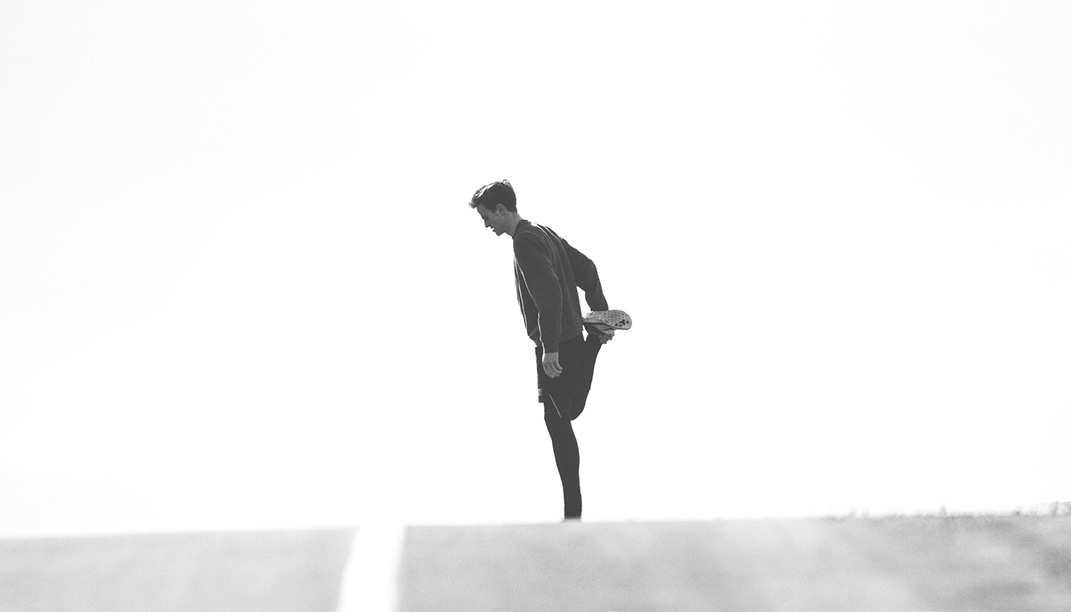Performance Shouldn’t Be The Focus of Your Fitness Routine
Here’s a take so hot it needs oven mitts
Most of us obsess over performance.
Generally, this is a good thing. If we perform at work, we get a promotion. If we perform on the field, we win the game. If we perform amongst our friends, we move up the social hierarchy.
Performance has its perks, and we’re all in on the chase.
Fitness is different. Longevity, not performance, should be the focus of your fitness routine.
Here’s why.
The race
When I was in my late 20s, I was training for the Indy Mini half marathon. Things were going well. I was pushing hard and making progress week over week.
A month before the race, I was outperforming my training plan by a wide margin. I felt strong both physically and mentally. I thought I was invincible, so I decided to dial things up even more. “To hell with tapering,” I thought. “Let’s see how high this rocket can fly”.
The body can only handle so much before it rebels.
Literally four days before the race, my lower body exploded. I was suddenly stricken with not one, not two, but three significant injuries. Injuries to my left foot, left hamstring and right knee. I could barely walk, let alone run a half marathon in less than a week’s time.
An overuse twinge there, a nagging pain there. Eventually those little annoyances weren’t so little.
Anger and frustration quickly set in. Both at myself for letting this happen and at running for abandoning me.
In my quest to maximize performance, I pushed my body way too hard. I neglected proper rest and recovery. I didn’t vary the intensity of my workouts. I ignored cross-training because “cross-training is f***ing stupid”.
I ended up traveling to Indy for the race. A bunch of my friends were running and I felt I needed to show my support. Plus I had already paid my $60 entry fee, so I was for damn sure getting the t-shirt.
The fallout
I wallowed in self-pity for about 2 weeks. I didn’t want to talk to anyone, see anyone or discuss running or fitness or anything. I just wanted to be left the hell alone.
But then, something curious happened. Anger faded and relief took its place.
Normally I would be chomping at the bit to get back on track. I’d be rolling and stretching and massaging until my hands bled if it meant I could run again.
This time was different. This time I took my time. I didn’t feel compelled to get back out there as fast as possible. I wasn’t losing sleep because I was missing it so much. I found comfort in the monotonous tasks generally associated with rest and rehabilitation.
In all, I took about four months off from running. I biked, I swam, I lifted weights. I went to hot yoga classes, spin classes and even tried Pilates once or twice. Physically, I felt stronger than ever before. Mentally, I felt at peace. When I finally did return to running, my mind (and body) was in a completely different place.
That was about 6 years ago. I haven’t had a major injury since.
The discovery
Oftentimes we don’t recognize the transformative power of certain events until well after they occur.
In the years since that fateful race, my fitness philosophy has changed completely. I no longer train with reckless abandon, singularly bent on getting stronger or faster or whatever. I’m no longer consumed by performance, competition, time, place or position.
Don’t get me wrong, a little bit of competition is healthy. In fact, it’s most likely unavoidable, since there is science to suggest competition is hardwired (to varying degrees) in every one of us.
But too much will derail your health and fitness in the long-term.
What interests me now is how fitness makes me feel. It is this feeling I chase day to day. And for me to be able to keep up the chase, I focus on longevity. On being able to train day in and day out, on not being on the sidelines. On being able to enjoy my training so that motivation, drive and desire don’t fall off.
I don’t run everyday anymore. And not every run is a frantic sprint to the finish. Most runs I consider play sessions. I’m out doing what I love to do. I lift weights. I previously didn’t believe in lifting weights as a runner. I have since seen the light. I’ve embraced active recovery. Mobility and flexibility are now just as important to me as speed and strength.
I view fitness through a lens of longevity and durability, not power and performance.
It’s not just flipping a switch. You don’t shift from a performance mindset to a longevity mindset like you would roll from the bed to the couch on a Sunday morning.
It takes practice, commitment and a willingness to change. But once you make the transition, you’ll find fitness is a consistent source of joy, satisfaction and fulfillment.
Sure beats the alternative.
Scott Mayer is a runner, thinker, curious observer and certified personal trainer.




